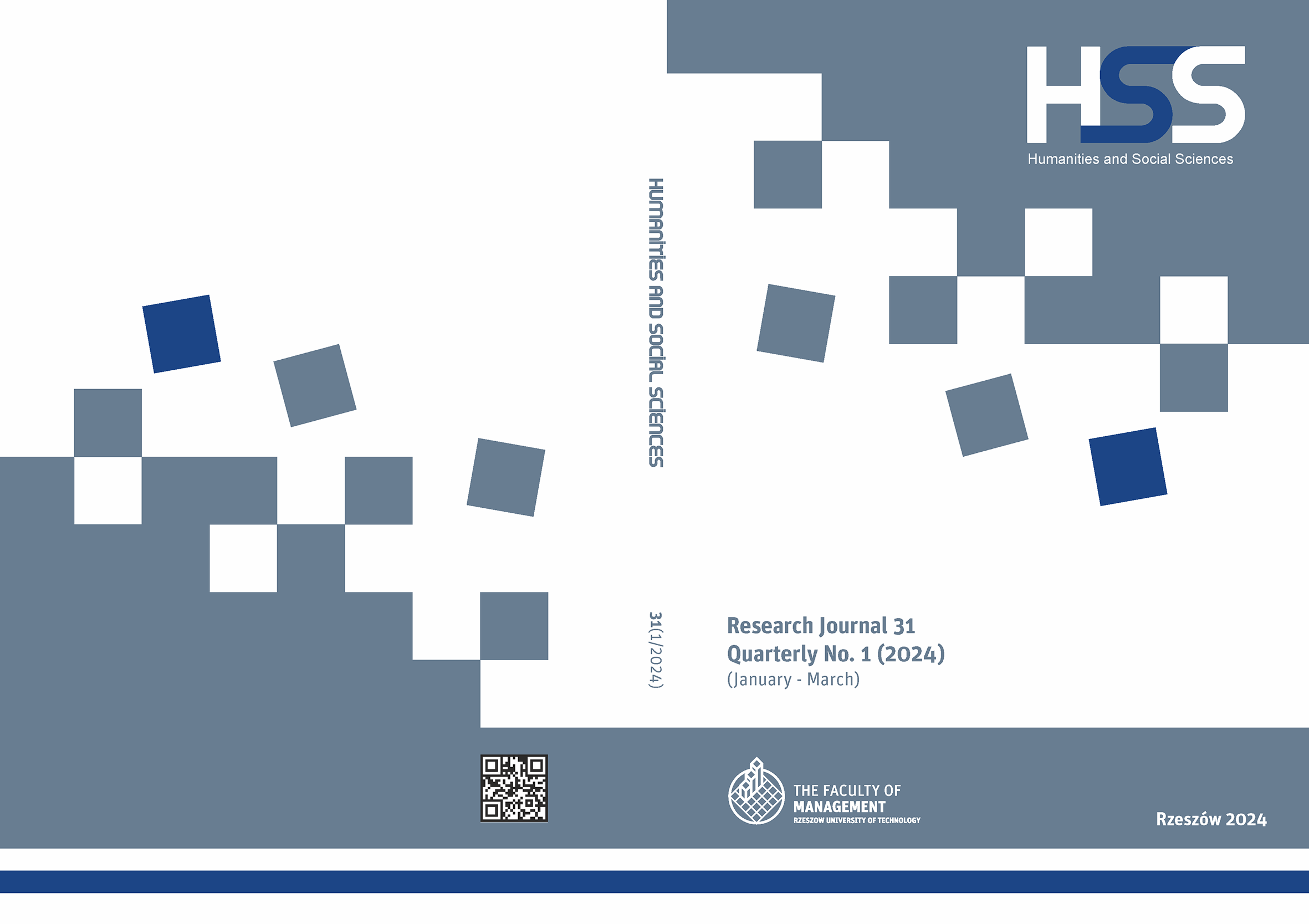Abstrakt
This article addresses the insufficiently researched topic of Green Project Management (GPM) in nonprofit organizations (NPOs). Factors supporting the application of GPM in NPOs can be identified among both external conditions (e.g., environmental policy, funder requirements) and internal conditions related to the specificity of the functioning of the NPO (e.g., size, forms of employment, sources of financing, project management solutions). This article aims to contribute to the discussion on the factors facilitating GPM in NPOs. The focus is specifically on the frequency of GPM practices in the areas of People, Planet, and Prosperity during project implementation. The study employed a quantitative survey using the CAWI technique; the respondents were individuals representing NPOs in Poland with project experience.
Bibliografia
Baines, T., Brown, S., Benedettini, O., Ball, P.D. (2012). Examining green production and its role within the competitive strategy of manufacturers. “Journal of Industrial Engineering and Management”.
Brookes, N.J., Morton, S.C., Dainty, A.R.J., Burns, N.D. (2006). Social processes, patterns and practices and project knowledge management: A theoretical framework and an empirical investigation. “International Journal of Project Management”, 24(6).
Carboni J., Duncan W., Gonzalez M., Milsom P., Young M. (2020). Zrównoważone zarządzanie projektami. Podręcznik GPM, pm2pm.
Carvalho, M.M.D., Rabechini Junior, R. (2015). Impact of risk management on project performance: the importance of soft skills. “International Journal of Production Research”, 53(2).
Charycka, B. Bednarek, J., Gumkowska, M. (2023). Ufamy, ale…Polki i Polacy o organizacjach pozarządowych. Raport z badań, 2023. Warszawa: Stowarzyszenie Klon/Jawor.
Glover, W.J., Poopunsri, T., Hurley, R. (2014). Applying Lean to Non-Profit Organizations: A Food Bank Case Study. Proceeding of the 2014 Industrial and Systems Engineering Research Conference.
Hack, S., Berg, C. (2014). The potential of IT for corporate sustainability. “Sustainability”, 6(7).
Huemann, M., Silvius, G. (2017). Projects to create the future: managing projects meets sustainable development. “International Journal of Project Management”, 35(6).
Jacobsson, M., Jałocha, B. (2018). A literature review on projectification: Trends, emerging ideas and avenues for future research [In:] The 14th International Research Network on Organizing by Projects (IRNOP) conference, Melbourne, Australia, December 10–12, 2018.
Maltzman, R., Shirley, D. (2010). Green Project Management. CRC Press, Milton Park, Abingdon, Oxfordshire.
Marciszewska, A. (2019). Dojrzałość projektowa organizacji non-profit (Vol. 295). Wrocław: Wydawnictwo Uniwersytetu Ekonomicznego we Wrocławiu.
Marciszewska, A. (2014). Structural funds and developmentof non-profit organisations. „Ekonomia XXI Wieku”, 04.
Miković, R., Petrović, D., Mihić, M., Obradović, V., Todorović, M. (2020). The integration of social capital and knowledge management–The key challenge for international development and cooperation projects of nonprofit organizations. “International Journal of Project Management”, 38(8).
Montes-Guerra, M.I., De-Miguel, A.R., Gimena, F.N., Pérez-Ezcurdia, A., Díez-Silva, H.M. (2015). Adoption of Project Management Practices and Performance. Non-Governmental Organisations of Navarre-Spain [In:] Project Management and Engineering: Selected Papers from the 17th International AEIPRO Congress held in Logroño, Spain, in 2013 (p. 31–44). Springer International Publishing.
Moshtari, M., Vanpoucke, E. (2020). Building successful NGO – Business relationships: a social capital perspective. “Journal of Supply Chain Management”, 57(1).
Ramazani, J., Jergeas, G. (2015). Project managers and the journey from good to great: The benefits of investment in project management training and education. “International Journal of Project Management”, 33(1).
Rathi, D., Given, L.M., Forcier, E. (2016). Knowledge needs in the non-profit sector: an evidence-based model of organizational practices. “Journal of knowledge management”, 20(1).
Saidoun, A. (2020). Project Management Competences and the Sustainability of Non-profit Organisations [In:] Research on Project, Programme and Portfolio Management: Integrating Sustainability into Project Management (p. 301–312). Cham: Springer International Publishing. DOI: 10.1007/978-3-030-60139-3_21.
Schindler, M., Eppler, M.J. (2003). Harvesting project knowledge: a review of project learning methods and success factors. “International journal of project management”, 21(3).
Seiler, B., Bortnowska, H. (2020). Mission statements and values of Polish non-profit organisations. “Organizacja i Zarządzanie: Kwartalnik Naukowy”. DOI: 10.29119/1899-6116.2020.52.9.
Shumate, M., Hsieh, P., O'Connor, A. (2018). A Nonprofit Perspective on Business – Nonprofit Partnerships: Extending the Symbiotic Sustainability Model. “Business and Society”, 57(7).
Silvius, A.G., Kampinga, M., Paniagua, S. Mooi, H. (2017). Considering sustainability in project management decision making; an investigation using Q-methodology. “International Journal of Project Management”, 35(6).
Silvius, A.G., Schipper, R. (2016). Exploring the relationship between sustainability and project success-conceptual model and expected relationships. “International Journal of Information Systems and Project Management”, 4(3).
Silvius, A.G., Schipper, R. (2014). Sustainability in Project Management Competencies: Analyzing the Competence Gap of Project Managers. “Journal of Human Resources and Sustainability Studies”, No. 2.
Silvius, A.G. (2012). Integrating sustainability indicators in IT/IS evaluation [In:] The European Conference on Information Systems Management (p. 291). Academic Conferences International Limited.
Silvius, A.G., Schipper, R. (2010). A maturity model for integrating sustainability in projects and project management, 24th World Congress of the International Project Management Association. Istanbul: IPMA.
Singh, S.K., Del Giudice, M., Chiappetta Jabbour, C.J., Latan, H. Sohal, A.S. (2022). Stakeholder pressure, green innovation, and performance in small and medium‐sized enterprises: the role of green dynamic capabilities. “Business Strategy and the Environment”, 31(1).
Subedi, S., Wagner, R. (2018). Portfolio management in non-governmental organizations [In:] The Handbook of Project Portfolio Management (p. 143–152). Routledge. DOI: 10.4324/9781315206592.
The Capacity of NGOs in Poland – key facts. Research Report 2021. Warsaw 2022 [access: 19.11.2023]. Access on the internet: https://fakty.ngo.pl/raporty/the-capacity-of-ngos-in-poland-key-facts-2021.
Transforming our World: the 2030 Agenda for Sustainability Development A/RES/70/1, United Nations 2015. Access on the internet: https://sustainabledevelopment.un.org/post2015/transformingourworld/publication.
Trocki, M., Juchniewicz, M., Bukłaha, E. (2020). Socially responsible project management. “Journal of Management and Financial Sciences”, 41. DOI: 10.33119/JMFS.2020.41.3.


